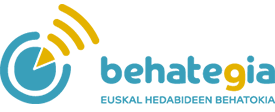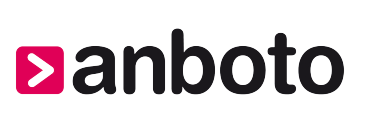The Department of Euskera, Culture and Sports of the Provincial Council of Bizkaia aims to promote communication projects in Basque in the territory, both in terms of periodical publications in Basque and communication projects that, without being periodical publications, have the Basque or communication in Bizkaia.
Among these projects, local, regional and territorial publications in Euskera are particularly relevant because of their work of disseminating Euskera to all areas of society, which reach the entire local population.
The main resource of the Provincial Council of Bizkaia to date for this workshop has been the annual subsidy line, so that these entities have the economic resources necessary for the development of their work. The original journals are subsidized, both those edited on paper and those edited on paper and those edited in digital format, provided that their main objective is the dissemination of local, regional or territorial information and are edited in full in Euskera1.
In this regard, the new funding framework was implemented in 2019 as a step forward in consolidating the sector (Alkorta, 2020-2). Thus, the calls for grants in 2019 were resolved as a result of the three-year agreement between the Vice-Ministry of Language Policy of the Basque Government and the three foreign ministers. The analysis of the standard budget of communication projects in Basque was one of the axes of the new communication framework in Basque, so public institutions funded a percentage of the project budget.
The local media in Bizkaia, in data.
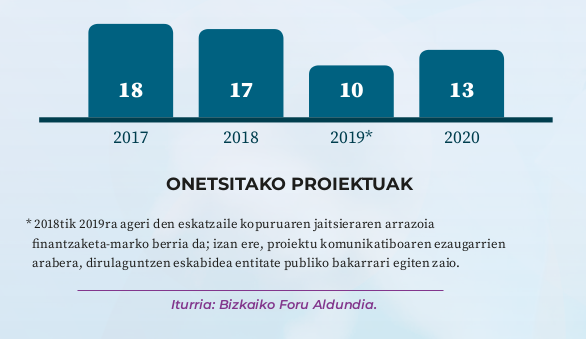
In the case of Bizkaia, after the evaluation of the 2019 call, there were significant differences between communication projects, such as creation/production, project vision, scope (local or regional level) and online balance and role (presence on the Internet and reinforced portal). The reasons for the differences between communicative projects are very diverse, starting with the nature of the entities, whether non-profit associations or companies, but with special impact on the management models of communicative projects. And in view of all this, from the General Directorate of the Basque Country we decided that also from the point of view of the management model should be given a boost to the media of our territory.
In fact, the General Directorate of the Basque Country of the Provincial Council of Bizkaia considers that the improvement of the management of the local media in Bizkaia will strengthen the fundamental role played by these communication projects in the normalization of the Basque Country, will contribute to increase the vitality of the Basque Country and, ultimately, will continue to play an important role in our society. In fact, improved management will enable local media to provide themselves with a greater capacity to adapt flexibly to this changing sector, greater capacity to propose innovations every year, better targeting of customers in general and readers in particular, and greater capacity to adapt and change products at all times.
In the last two years, public administrations and the media sector have maintained a regular relationship at the communication table in Basque, also known as the media table, and the Provincial Council of Bizkaia has presented and proposed the intention to improve the management of local media. However, it is also interesting and enriching that each territory is usually linked to the local media in its area of influence and, in this regard, taking into account the importance of guiding the calls for grants to the beneficiaries, for the first time in 2020, the beneficiaries of all the calls for grants were made, including to the beneficiaries of the local media, the results leave a significant margin for improvement to the Provincial Council of Foreign Affairs.
In view of the above, it should be noted that TOKIKOM, the convergence of local media in Basque, shares the hypothesis raised by the Provincial Council of Bizkaia regarding the need to modify the management model. Indeed, from the very moment it took its first steps in 2012, TOKIKOM’s main objective is the consolidation and consolidation of the local media sector. Being a sector with roots and origin in associationism and volunteering, professionalization is the first condition that these stabilizations and settlements require.
Professionalization is a local media activity that takes place in all areas, from journalism and programming, to administration and management, obviously. In order to uncover the scope of these needs, TOKIKOM made a management diagnosis among its partners by EUSKALIT in 2015. Based on the results of that diagnosis, in 2016 he organized a training session in Advanced Management that he repeated over the coming years. In total, 15 members participated in these training sessions, 90% of the partners who participated in the first year continued the training in the second year and the partners valued the training approach with a score of 7.96 out of 10.
In 2020, starting from the objective set at the beginning of this article by the Provincial Council of Bizkaia, and based on the experience of TOKIKOM, we have launched an experience of deepening this road with 12 local media in Bizkaia. Basic training in Advanced Management has been offered to professionals working in them, with the objective of having more resources to improve the management model. Two training sessions have been held.
When we talk about “Advanced Management” we talk about generating a long-term vision in the media, of orienting clients (readers, subscribers, users, shops, municipalities), of capturing that the people who make up the medium have a shared project, of having a social commitment, of innovating in the medium and how not, of a management model that provides the best results (continuously and balanced) for the environment and its groups of interest.
In these training sessions we have combined Advanced Management with group dynamics. Thus, participants have not only received the training, but have also had the opportunity to get to know each other and exchange experiences, in order to learn from each other and take the first steps to weave the network between the Bizkaia media.
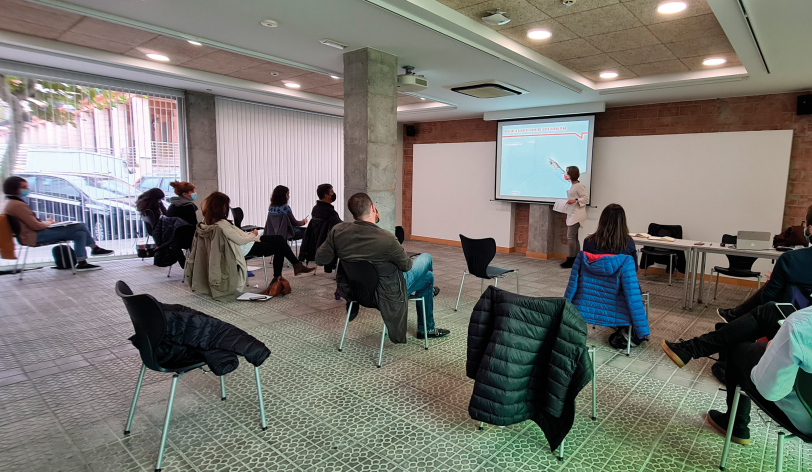
Material and methods
Methodology
Practical, from the theory but from the closest reality, from the practical reality, proposing answers and providing keys for self-diagnosis
- Presentation: Exercise of Chronology and Prospects in Local Media conducted by OMIC.
- Working on topics in small groups and then in large groups to enable debates and exchange experiences.
- Household chores.
- Base: Advanced Management.
Material
- The keys to working on mission and vision (ambition), putting in context where we come from local media and where the world is going.
- Concept and elaboration of the SWOT.
- Concept of scorecard and its elaboration.
Results
Number of media participants: 12 (92% of grants)
The overall assessment was positive, with the most valued aspects being the following:
- Possibility of starting from mutual knowledge and sharing experiences.
- These sessions raise questions of reflection before the new paradigms, visualizing common challenges in groups.
- And inside the house they"re encouraged to ask pending questions.
Proof of this are the testimonies of the two participating media, Anvoz and Drogetenitturri respectively:
ANBOTO started its journey towards Advanced Management in 2016. It was about creating sound management bases. This doesn"t mean we didn"t use our management tools until then. But as the project grew, we realized that we needed a broader methodology. By analyzing our weaknesses, we saw that the associative character did not respond to the project"s needs. From this reflection came the idea of creating a cooperative. Advanced Management has helped us a lot in this change.
Likewise, through EUSKALIT and TOKIKOM, there were formations around Advanced Management. We realized that through TOKIKOM we could create tools for local media (contrast results, surveys, etc.). They could help us. Later, through the Innovative GIS programme, we also received advice to improve in different areas. We started working with a dashboard and indicators.
The creation of an Advanced Management Forum in Bizkaia has therefore seemed very interesting to us from the outset. On the one hand, knowing the reality of other media is useful. Many times we realize that we have similar strengths and weaknesses, or that some problems we have already had others. Sharing these experiences is very important. Furthermore, despite the fact that we had already dealt with issues such as the Mission and the Vision in ANVOW, we have had a good time to review it. Because the foundations that are laid at first can change constantly, and look more and more. In this sense, it is interesting to hear the reflections of other media. In this forum we are all aware that we have much to improve in Advanced Management and that further deepening on this issue can be interesting.
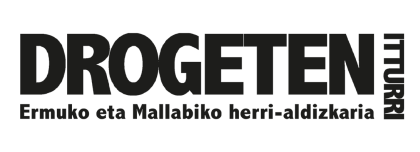
Drogetenitturri, the popular journal of Ermua and Mallabia, was born in 1989 in the flourishing of local media. At that time, the entire team that carried out the journal worked voluntarily to disseminate and promote the Basque country. In June they stopped saying goodbye and, after deep reflection, saw the need for a professional. Thus, the greatest weight of the journal lay on a permanent employee who was the layout journalist. This person had at his side the network of collaborators and two people who worked in them. Thus, it began to be published again in Drogetenitturri. Since then, there have been few modifications that have occurred today, with a single worker who deals with the editorial works of the journal, layout, administration and publicity, with the indispensable support of the collaborating network.
In this sense, the local media workers in Euskera often say that they eat us daily, and that is the way in which they work with so few personal and economic resources. But also, if it is not enough to take the day to day, from time to time we receive invitations to participate in conferences or meetings, in which topics of interest will be discussed, are issues that are difficult to apply in our work.
Even when we received the proposal to participate in the Advanced Management sessions we were thinking it would be another sterile meeting, but on the contrary, it has allowed us to raise our heads from the table and look at our work from another perspective. And also the opportunity to get to know the realities of the media around us — and at the same time so distant — as part of our development and all that remains to be done. In essence, it has shown us the need for a strategy.
Focusing on the work of these sessions, we have enthusiastically joined the process that has just been launched to create a common communication project in Bajo Deba. We understand that the design of appropriate strategies can provide us with a real opportunity for efficiency and communicative and technological development. And we hope to have begun a productive path.
Conclusions
The local media plays a fundamental role in the normalization and dissemination of the use of Euskera. But in order to be able to continue playing this role, it is essential that in recent years it should adapt as best as possible to the field of communication that is changing at great speed and, above all, that it should acquire flexibility and strength to respond quickly to the changes that are coming continuously.
To survive in this field, the local media, in addition to the aspects of the Basque culture and the communication that have given rise to its creation, increasingly need to preserve its management aspect. To order this last aspect, Advanced Management offers the most appropriate tools to adapt to the needs of each.
The Advanced Management model is not, in itself, an end, but an instrument, and in this context, it offers resources to define what we are and what we want to be of each media. To do this, we have to collect information, analyze reality, make decisions, risk and make reality. Next, it requires the measurement of the results of what has been done and the decision-making on them.
In our case, we face the challenge of weaving a powerful network of local media to strengthen and develop the Basque community, in which we would all like to be both the sector and the institutions. Now it"s time to look ahead to reality, analyze and make decisions, take risks and walk together.
The intention of this initiative was to launch a wheel to improve the management of local media, in this case using the Advanced Management Model. Although it is still early to measure the results, we have taken the first steps together, and the welcome of the participants in the sector has given us the assurance that we are at the beginning of a fruitful road.
1.- Official Gazette No. 244. FORAL DECREE 115/2020 of 15 December of the Provincial Council of Bizkaia, approving the regulatory bases and the call for grants: ‘Such grants shall be granted to commercial companies, cooperative societies, individual entrepreneurs, professionals and non-profit legal entities which publish Basque journals during the financial year 2021 and are published entirely in Basque’.
2.- Alkorta, Estibaliz (2020): ‘New field of Basque communication’, Basque Media Yearbook, 2019, p. 221-222, <https://behategia.eus/eu/txostenak/urtekariak/> <https://behuntz.eus/eu/txostena/urtekariak/> <https://behstrategy a.eus/eu/txostenak/urtekariak/> <https://behuntz.eus/eu/txostena/urtekariak/>
3.- Although it is not the subject of this article, it is considered interesting to briefly review the results: Eight of the 13 beneficiaries replied. In general, having requested the evaluation of the management of the call on a scale from 0 to 10, the Provincial Council of Bizkaia has received an average score of 5.6 points. Going down to detail, the beneficiaries are asked if the information made available to the interested parties is adequate, the information in the call is understandable and clear, and they give it a score of 7.1. Assessment of registration deadline 5.1 points. The score for the resolution period was low, 3.9 points. Regarding the ease of contact with the managers of the call, the score has been 5.1 points.
